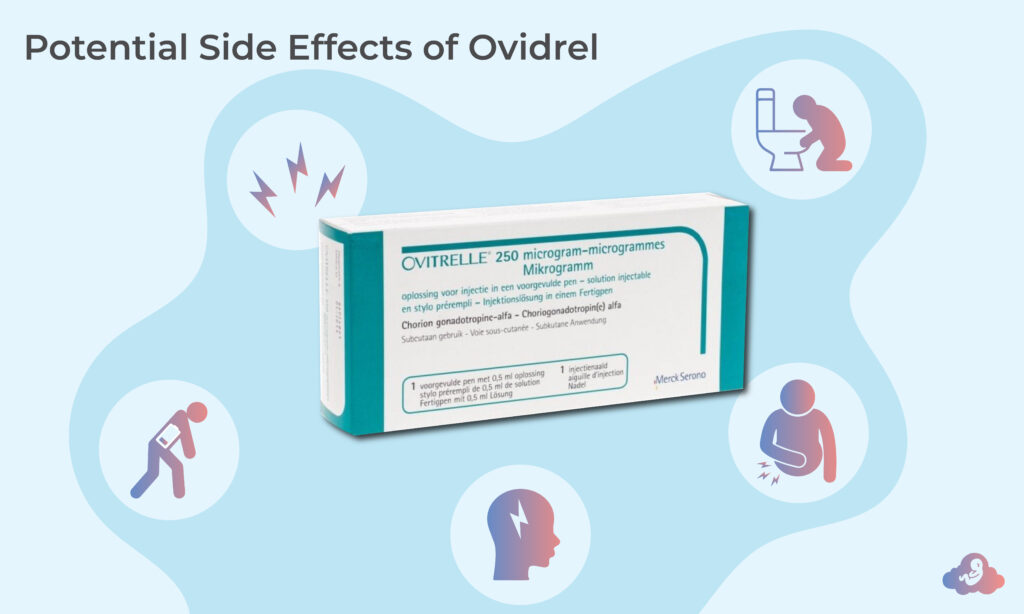Learn all about Ovidrel and how it affects fertility
Ovidrel: The Ultimate Guide to Understanding and Optimizing Fertility Treatment
Ovidrel (Human Chorionic Gonadotropin) is a widely recognized fertility medication that has been making a significant impact in the world of reproductive health. As a crucial component in fertility treatments, it has helped countless couples to conceive and bring new life into the world. In this comprehensive guide, we’ll delve deep into the world of Human Chorionic Gonadotropin, exploring its uses, benefits, side effects, and more. Whether you’re considering Human Chorionic Gonadotropin as part of your fertility journey or just curious to learn more, this article has you covered.

Table of contents
What is Ovidrel and How Does It Work?
Ovidrel, also known as chorionic gonadotropin (r-hCG), is a recombinant form of human chorionic gonadotropin hormone. It is created using recombinant DNA technology, which allows for the production of a biologically identical hormone to the one produced naturally by the human body.
The primary function of Human Chorionic Gonadotropinis to stimulate the release of mature eggs (ovulation) in women undergoing fertility treatmen ts such as in vitro fertilization (IVF) or intrauterine insemination (IUI). It is administered via subcutaneous injection, typically 24-48 hours before the anticipated time of ovulation.
Who Can Benefit from Ovidrel?
Human Chorionic Gonadotropin is primarily prescribed for women who are having difficulty conceiving due to issues with ovulation. This can include:
- Women with irregular or absent menstrual cycles
- Women diagnosed with polycystic ovary syndrome (PCOS)
- Women undergoing controlled ovarian hyperstimulation (COH) as part of IVF treatment
In some cases, Human Chorionic Gonadotropin may also be prescribed for men with low sperm count or poor sperm quality to help improve their chances of successful conception.
How to Use Ovidrel: The Dosage and Administration Process
Human Chorionic Gonadotropin is typically administered as a single subcutaneous injection. The dosage and timing of the injection will be determined by your healthcare provider based on your specific needs and treatment plan. It is essential to follow their instructions closely and not to administer Human Chorionic Gonadotropin without professional guidance.
Before administering the injection, make sure to wash your hands thoroughly and clean the injection site with an alcohol swab. Inject this medication into the fatty tissue of the abdomen, thigh, or the back of the upper arm. Gently pinch the skin at the injection site, insert the needle at a 45-degree angle, and slowly push the plunger to release the medication. Dispose of the used needle and syringe properly in a designated sharps container.
Potential Side Effects of Ovidrel

As with any medication, Human Chorionic Gonadotropin may cause some side effects. While most side effects are mild and short-lived, it’s essential to be aware of them and consult your healthcare provider if you experience any persistent or severe symptoms. Common side effects include:
- Pain, redness, or swelling at the injection site
- Headache
- Fatigue
- Nausea
- Abdominal bloating or discomfort
In rare cases, Human Chorionic Gonadotropin may cause more severe side effects, such as:
- Ovarian hyperstimulation syndrome (OHSS), which can cause rapid weight gain, severe abdominal pain, and difficulty breathing
- Allergic reactions, including rash, itching, and difficulty breathing
- Blood clots
If you experience any severe or concerning symptoms, contact your healthcare provider immediately.
Precautions and Contraindications
Before starting, it is crucial to discuss your medical history with your healthcare provider. If you have any of the following conditions make sure to consult prior to using it. These include:
- Allergies to any of the ingredients
- Uncontrolled thyroid, adrenal, or pituitary disorders
- Ovarian cysts or enlargement unrelated to polycystic ovary syndrome
- Abnormal uterine bleeding of unknown cause
- Pregnancy or suspected pregnancy
It is also essential to inform your healthcare provider of any other medications, supplements, or herbal products you may be taking, as these can potentially interact with HCG.
Success Rates and Expectations
The success of fertility treatments involving Human Chorionic Gonadotropin depends on various factors, including the underlying cause of infertility, the woman’s age, and the overall quality of the eggs and sperm. While Human Chorionic Gonadotropin can significantly improve the chances of successful conception, it is essential to maintain realistic expectations and understand that multiple treatment cycles may be necessary.
In general, the success rates for fertility treatments involving Human Chorionic Gonadotropin are encouraging. Studies have shown that women undergoing controlled ovarian hyperstimulation with Human Chorionic Gonadotropin have a higher rate of ovulation compared to those who don’t use the medication. Furthermore, Human Chorionic Gonadotropin can improve the chances of conception in both intrauterine insemination (IUI) and in vitro fertilization (IVF) procedures.
The Cost of Ovidrel
The cost can vary depending on factors such as your location, insurance coverage, and whether you require additional fertility treatments. On average, a single Trigger shot injection can cost between $200 and $300. It’s essential to discuss the potential costs with your healthcare provider and explore any available financial assistance programs or insurance coverage options.
Conclusion
Human Chorionic Gonadotropin is a promising fertility treatment option for couples who are struggling to conceive due to issues with ovulation. By stimulating the release of mature eggs, this medication can significantly improve the chances of successful conception. As with any medical treatment, it is crucial to discuss your options and potential risks with a qualified healthcare provider to determine if Human Chorionic Gonadotropin is the right choice for your fertility journey.
While we work hard to bring you the most accurate and relevant information available on fertility, it’s important to remember that each person’s journey is unique. The guidance provided here is intended for general knowledge and may not directly apply to your situation. Fertility challenges should always be discussed with a licensed medical professional who can offer personalized advice tailored to your individual health history and needs.
Beyond medical treatments, there are many ways to support your fertility naturally. Reducing stress, maintaining a healthy diet, getting regular exercise, and ensuring adequate sleep can all play important roles in optimizing your fertility health. Simple changes such as managing stress through mindfulness, yoga, or meditation and prioritizing quality sleep can improve overall well-being and contribute to a more balanced approach to fertility. However, always consult a fertility specialist to get professional advice and recommendations suited to your personal circumstances. Your health and fertility are complex and unique, and professional guidance is essential to ensure you are on the right path for your body and your goals.